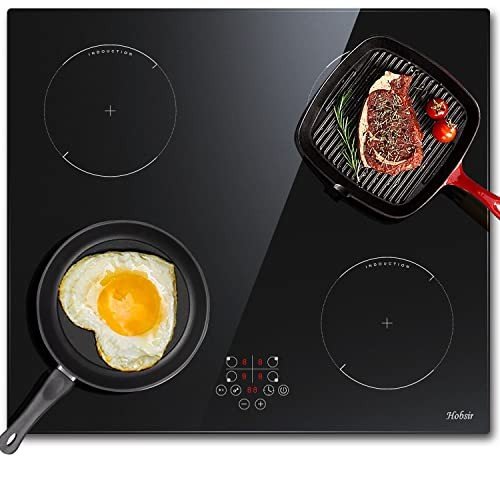Understanding Electric Ovens and Hobs: Your Guide to Cooking Efficiency
Electric ovens and hobs have changed the culinary landscape, using home cooks and professional chefs a trusted, efficient, and consistent method to prepare meals. As technological developments continue to affect device design, the performance and performance of electric cooking systems have actually substantially improved. This post looks into the features, benefits, and considerations surrounding electric ovens and hobs, offering a detailed overview for anybody seeking to update or buy kitchen home appliances.
What Are Electric Ovens and Hobs?
Electric ovens are kitchen devices designed for baking, broiling, roasting, and other cooking methods that need regulated heat. They utilize electric coils or convected heat components to generate and keep the preferred temperature level. Electric hobs, typically referred to as electric cooktops, are flat surface areas with heating aspects that allow pots and pans to be positioned directly on them for cooking.
Table 1: Key Differences Between Electric Ovens and Hobs
| Function | Electric Oven | Electric Hob |
|---|---|---|
| Primary Function | Baking, roasting, broiling | Heating pots and pans for cooking |
| Heating Method | Electric coils or glowing elements | Induction, radiant, or ceramic elements |
| Operation Temperature Range | Up to 500 ° F (260 ° C | ) Varies by design; generally lower than ovens |
| Cooking Styles | Versatile; ideal for various dishes | Mainly stovetop cooking methods |
| Area Requirement | Generally built into kitchen cabinetry | Often standalone or built-in alternatives |
| Energy Consumption | Generally greater, depending upon use | More energy-efficient with induction hobs |
Benefits of Electric Ovens and Hobs
When thinking about electric ovens and hobs, it's necessary to comprehend their many benefits, which can improve the cooking experience.
1. Constant Heating
Electric ovens and hobs offer even and consistent heating, which is essential for lots of cooking strategies. This guarantees that meals cook consistently, reducing the opportunities of overcooking or undercooking certain areas of food.
2. Security Features
Modern electric ovens and hobs come equipped with numerous security features to avoid accidents in the kitchen. For instance, many models consist of automatic shut-off functions, hot surface indicators, and kid safety locks.
3. Easy to Use
Unlike gas models, electric ovens and hobs are straightforward and user-friendly. The simplicity of switching on a dial or pushing a button makes them accessible for cooks of all skill levels.
4. Versatile Cooking Options
With numerous cooking techniques possible, from baking to simmering, electric models are versatile adequate to accommodate a large range of culinary designs and preferences.
5. Cleaning up and Maintenance
Electric ovens usually include smooth surface areas that are easy to tidy, especially models with self-cleaning capabilities. Hobs, especially induction types, likewise offer a flat surface area that is simple to clean down, making upkeep a breeze.
Popular Types of Electric Ovens:
- Conventional Ovens: Ideal for conventional baking and roasting.
- Convection Ovens: Circulate hot air for faster, even cooking.
- Microwave Ovens: Use electro-magnetic radiation for fast heating and cooking.
- Toaster: Small counter top ovens for fast jobs.
Popular Types of Electric Hobs:
- Induction Hobs: Utilize electromagnetic fields for rapid heating and energy performance.
- Radiant Hobs: Feature electric coils that warm up to cook food.
- Ceramic Hobs: Offer a smooth surface and are easy to tidy.
Factors To Consider When Choosing Electric Ovens and Hobs
While electric ovens and hobs provide numerous advantages, a number of elements need to be taken into consideration to ensure the right fit for your kitchen:
1. Area Availability
Examine the readily available kitchen area before purchasing. Identify whether you need an integrated design or a freestanding appliance, and measure the dimensions thoroughly to guarantee an excellent fit.
2. Cooking Needs
Determine your cooking practices and choices. If Hobs Sale bake big quantities or cook complex meals, think about an oven with advanced functions like convection settings or numerous racks.
3. Energy Efficiency
Try to find energy-efficient designs that can conserve on energy costs gradually. Energy Star-rated devices can be especially cost-efficient.
4. Budget
Set a reasonable budget that accounts for both the preliminary purchase and ongoing operating expense. In addition to the home appliance cost, factor in installation and possible repairs.
5. Extra Features
Consider whether features like clever technology, programmable settings, or steam cooking options are essential for your cooking style.
FAQ Section
Q: How do I clean my electric oven?
A: Most electric ovens come with self-cleaning alternatives. If your design does not have this function, enable the oven to cool, then clean down surface areas with a mix of baking soda and water or a commercial oven cleaner.
Q: Is induction cooking safe?
A: Yes, induction cooking is considered safe as the heating element just activates when compatible pots and pans touches with it, reducing the danger of burns.
Q: How long does it take for an electric oven to preheat?
A: Preheating times vary based upon the oven's model and temperature level setting but typically range from 10 to 15 minutes.
Q: Can I utilize any cookware on an induction hob?
A: No, just ferromagnetic pots and pans works with induction hobs. Look for induction compatibility before usage to prevent damage.
Q: What is the difference between a stove and a conventional electric oven?
A: A stove includes a fan that circulates hot air, making sure even cooking and decreased cooking times compared to a traditional electric oven, which does not have this feature.
Electric ovens and hobs offer a modern-day solution to numerous cooking requirements, using efficiency and dependability in the kitchen. As customers evaluate their options, comprehending the features, types, and considerations will allow them to make informed decisions. Whether one is an occasional cook or a cooking lover, electric home appliances can enhance the total cooking experience, bringing convenience and imagination to the table.

